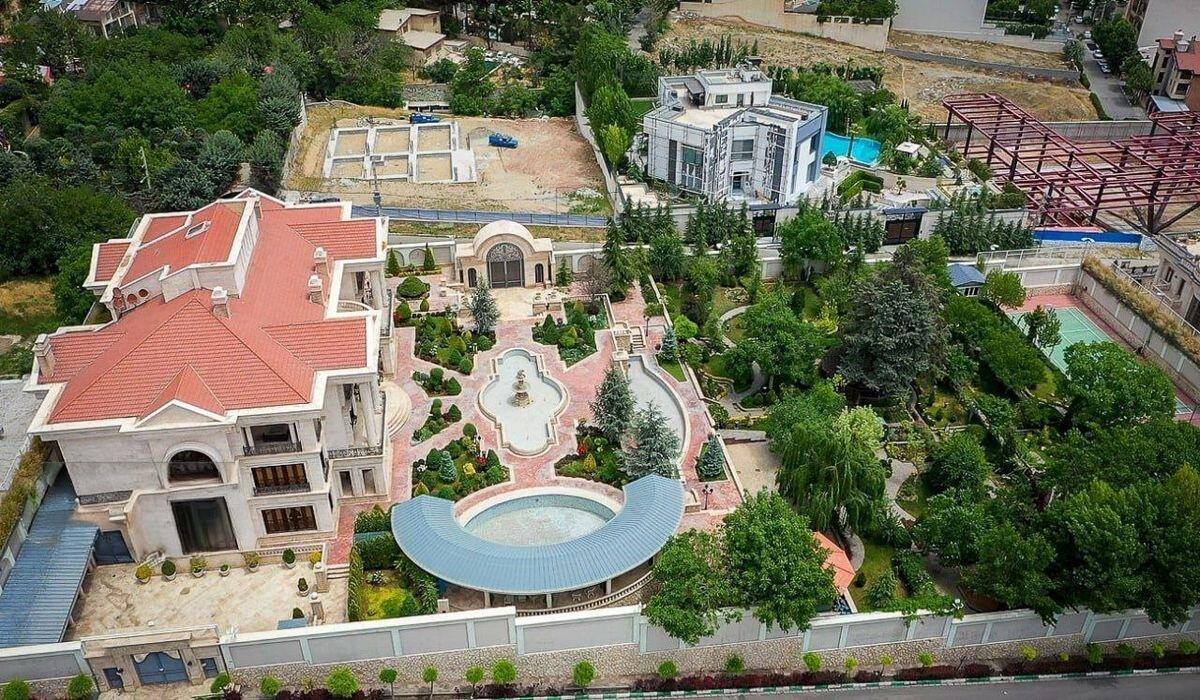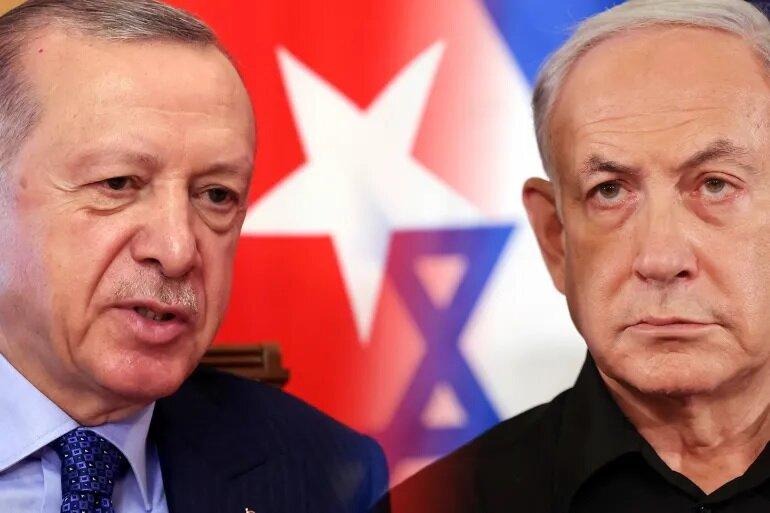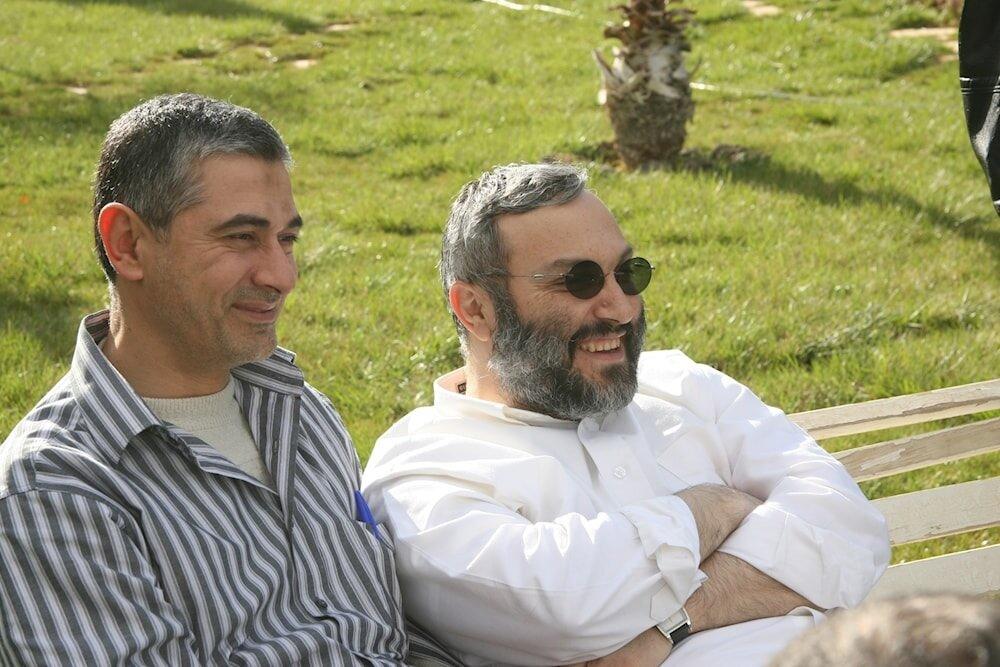A year after Israel's pager attacks in Lebanon, survivors rebuild
A year after Israel's pager attacks in Lebanon, survivors rebuild

“Something big is happening.”
That was the WhatsApp message that popped up on Ahmad’s phone in the afternoon of 17 September 2024. Soon, the nightmare would begin.
His sister Ataa Mubarak, an intensive care nurse and mother of two, had been seriously wounded after a pager belonging to a family member exploded near her, part of a widescale Israeli attack.
She had been cooking dinner at home in her kitchen, in the Bekaa Valley, eastern Lebanon. Her son Youssef, a toddler, saw everything.
Ataa’s wounds were fatal: she would soon die in the hospital where she had worked nearly every day. She was 28 years old.
“She died in the very intensive care unit she was in charge of,” recalls Ahmad, who asked for his name to be changed.
At first, her colleagues didn’t recognise her due to the severity of her wounds. It was only later that they learned her identity.
“I was there, the nurses were crying: ‘This is Ataa! This is Ataa!”
To this day, he can’t bring himself to visit Ataa’s home, the spot where she was mortally wounded.
At the moment of the explosion that killed Ataa, thousands of pagers belonging to Hezbollah members - a party comprising everyone from healthcare workers to moneylenders - also went off.
Many showed “error” messages and vibrated loudly prior to exploding, luring Hezbollah members or, in some cases, their family members to stand close by at the point of detonation. The blasts were compared to those of hand grenades, causing severe injuries to the face, eyes and hands.
Some victims had simply been bystanders in the wrong place at the wrong time, such as grocery stores near their homes, passing by people who had been unknowingly carrying the ticking time bombs.
Soon after, hundreds of ambulance sirens wailed across the country as thousands of civilians were rushed for medical help.
Life-altering wounds
The next day, 18 September, more communication devices exploded - including at the public funerals of Hezbollah members and civilians, among them at least two children, killed in the previous day’s attacks.
The second wave of attacks exacerbated fears of other electronic devices exploding, prompting many people to put away their smartphones and disconnect household equipment.
While many Israeli figures celebrated, praised and even joked about the attacks, United Nations experts called them a “terrifying” violation of international law.
In total, 42 would be killed and thousands wounded, many of them with life-altering injuries to the eyes, face and hands.
As the world would learn in the coming days, Israel had booby-trapped the pagers and walkie-talkies years earlier, infiltrating Hezbollah’s supply chain via a convoluted series of shell companies.
The attacks marked the beginning of several traumatic months for Lebanon, as Israel invaded the south in the following days, heavily bombed much of the country and killed at least 4,000 people in what became known as the ‘66-day war’.
Over a million more people would be displaced from their homes before a ceasefire agreement was reached in November. Despite this, Israel continues to bomb Lebanon, occupy areas in the south and violate the country’s airspace on a daily basis.
Survivors and the families of the people who were killed believe they had been victims of a “terrorist attack”. Rights and legal organisations have meanwhile sounded the alarm over the illegality of these operations.
Ramzi Kaiss, a Lebanon researcher at Human Rights Watch, says international humanitarian law prohibits booby traps designed to lure civilians, including everyday objects such as pagers used in medical and other civilian contexts.
“In the case of the pager attacks, yes,Hezbollah said that the pagers belonged to employees of various Hezbollah institutions, but not necessarily its military wing,” Kaiss tells MEE.
In any case, the attack was “unlawfully indiscriminate”, Kaiss added, as the thousands of devices exploded near simultaneously, making it impossible to ascertain the locations of every intended victim, whether fighter or civilian.
'Everything just went black. Black, black.”
At a physiotherapy clinic just outside Tyre, in southern Lebanon, 21-year-old Sarah Jaffal is learning to use her hands again.
With the help of her therapist one morning in April, she squeezes a metal spring device, then a foam ball. The metal device is her least favourite.
“I can’t do this one,” she laughs, from behind sunglasses that obscure some of the visible scars to her face and eyes.
Back on 17 September 2024, Sarah had just returned from a religious pilgrimage in Iraq and was sitting in her kitchen at home in south Lebanon. A family member’s pager sat unattended nearby. Suddenly, she heard a “weird, strong sound” coming from the device, which also showed an “error” message.
The next few seconds are erased from her memory.
“I didn’t hear anything or feel anything…everything just went black. Black, black.”
It wasn’t until the paramedics arrived that Sarah began to feel the pain of the hundreds of bits of white-hot shrapnel that had just torn through her face and hands.
She had been taken all the way to a hospital in Beirut, then to Iran to undergo dozens of operations. There, she kept her spirits up by teaching the nurses English in exchange for Farsi lessons. She and the others there who had been wounded by the pager attacks became fast friends. “There was pain, but also joy.”
In all, Sarah lost several fingers and one of her eyes. She’s also still receiving laser treatments to remove the bits of plastic shrapnel embedded in her face, with Hezbollah covering the cost.
Smiling, she’s adamant that she isn’t discouraged by the experience, and hopes to start a master’s degree in data science.
“I’m not weak, I’m going to keep going. I’m not someone who is going to just stay at home and call it quits.
“My life doesn’t stop here.”
A cemetery where Fatima now rests
As Sarah heals, other families are still deep in mourning.
Among them are the loved ones of nine-year-old Fatima Abdallah, the youngest victim of the pager attacks.
On 17 September 2024, she was sitting on her own in the kitchen of her family home in the Bekaa Valley when a relative’s pager began to beep near her. When she moved closer to check it out, the device exploded, instantly killing her.
“She had just come home from school and was all alone,” one of her older brothers tells MEE from the family home.
It is a story that still hurts the family deeply.
“It’s difficult,” her brother says quietly. Her loss has left behind a lasting wound.
“Everyone loved her…she was smart. She had memorised the Quran. She was a role model for the other girls. They would say: ‘I want to memorise the Quran like Fatima.’”
In their living room, Fatima’s family set up a small memorial, displaying her scout uniform in a glass case.
Below the family house, in a spot visible from the window, is the cemetery where Fatima now rests.
Scarred and blinded
Many survivors are simply trying to move on with life despite their profound physical and psychological injuries. Hassan Bahsoun, 17 years old, was severely wounded in the face when his father’s pager exploded last year.
Hassan's home in Tayr Debba, a village in the hills above Tyre, overlooks the valleys where residents can see one of the eight Israeli military outposts illegally occupying southern Lebanon.
It was early afternoon, and Hassan was home with his family.
“The pager was on the table. My father got up and left it there, and the moment he did, it started making a noise and vibrating as if it was dancing on the table,” Hassan tells MEE.
Suddenly, a huge explosion.
“It also hurt my 16-year-old brother, who was hit by shrapnel to the face.”
Hassan’s wounds were more serious. He was left blinded in both eyes, with scars criss-crossing his face.
“If the pager had been closer to me, I would have died,” he says.
Despite the devastating injuries, he was one of a slew of Lebanese high school students from the south who earned top marks on the recent national exams.
It’s still a long road to full recovery. “I had 10 surgeries, but there are still some pieces of shrapnel in my face,” he says. “And my hands are still in pain.”
He will never regain his eyesight.
Fresh headstone, wilted roses
Ahmad says he is hoping for legal recourse for his sister Ataa’s killing. “I want justice.”
That could prove difficult - Lebanon is not party to the Rome Statute, which established the International Criminal Court (ICC) in 1998. That means there is no clear avenue yet for Lebanese citizens to seek justice in the aftermath of the pager attacks.
“The ICC doesn’t have jurisdiction over Lebanese territory,” HRW’s Kaiss says. “It can’t investigate or prosecute violations that occurred in Lebanon.”
Still, he adds, Lebanon could seek to provide retroactive jurisdiction to the ICC, to cover past war crimes. Last April, the government did make moves to give ICC jurisdiction, but eventually withdrew the decision.
Nevertheless, Ahmad is still hoping for some form of justice, in memory of Ataa.
“I never remember her not smiling,” he says. At times, he still speaks of her in the present tense, as if the shock of her death is still too much to bear.
And yet, at the cemetery nearby, Ataa’s portrait smiles warmly atop a fresh headstone. Wilted roses surround the picture.
“She’s always there for people,” Ahmad says. “She took care of everyone.”
Additional reporting by Madeline Edwards.












